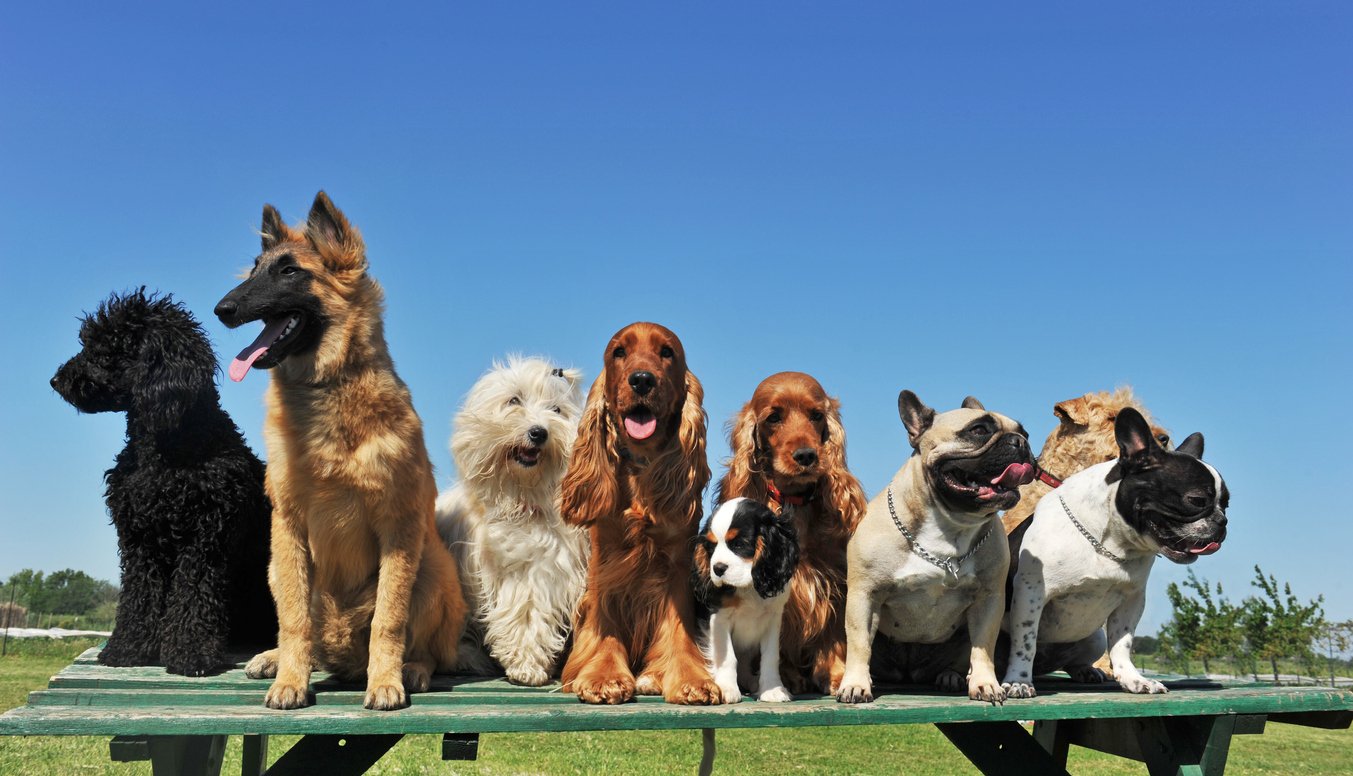Whether you’re a devoted bird parent planning a vacation or a boarding facility owner looking to expand your services, caring for birds outside the home requires a specialized approach. Birds are unlike cats and dogs: They’re highly sensitive to changes in their environment, they rely on routine for security, and their health can deteriorate quickly under stress, just like a beloved feathered family member.
That’s why it’s important to follow clear guidelines when it comes to bird care in boarding settings. For owners, understanding these bird boarding tips will help you make confident decisions about pet boarding facilities where to leave your feathered friend. and how to prepare them for the experience. For boarding facilities, these do’s and don’ts serve as a roadmap for developing safe, professional services that meet the needs of both birds and their families.
By combining the perspectives of pet bird parents and professional boarding facilities, it's important to understand what it takes to create a safe, stress-free boarding experience, helping connect with other bird lovers.

Understand the Basics: Bird Boarding Tips
For Bird Parents
Do: Learn the difference between bird boarding and bird sitting. Boarding involves leaving your bird at a professional bird boarding facility, where staff handle feeding, cleaning, and supervision. Bird sitting, on the other hand, means hiring a bird sitter or trusted pet sitters to come into your home and care for your bird in its familiar environment. Both options can work, but the right choice depends on your bird’s temperament and your confidence in the caretaker.
Most birds are social creatures that require daily mental stimulation and a suitable house to thrive in boarding environments.
Don’t: Assume all boarding facilities or sitters understand birds. Many kennels primarily serve dogs and cats, with little knowledge of avian behavior or health. Birds have specific dietary, environmental, and emotional needs that require specialized attention. Choosing the wrong option can lead to stress or even illness.
For Boarding Facilities
Do: Recognize that offering bird care is not the same as caring for dogs or cats. Birds need specialized housing, quiet spaces, and staff training in avian handling. If you’re thinking about expanding into bird boarding, be prepared to invest in equipment and staff education.
Don’t: Underestimate the demand. Many bird parents struggle to find safe, professional bird boarding facilities. Expanding your services to include avian care can set your business apart — as long as you’re prepared to provide the level of expertise and care birds require.
Choose (or Provide) the Right Bird Boarding Facility
For Bird Parents
Do: Visit the facility before booking. Look for clean enclosures, fresh air circulation, and quiet, bird-friendly spaces. Ask how staff handle emergencies, how often they interact with the birds, and whether they’ve been trained in avian care. Reputable pet boarding facilities should have secure cage doors to prevent escapes and clean the cage daily to maintain hygiene. When evaluating facilities, seek recommendations and reviews from other bird owners to ensure quality care.
Don’t: Ignore red flags like loud, chaotic environments, cages placed near barking dogs, or staff who seem uncertain about handling birds. A reputable bird boarding facility should be transparent, professional, and comfortable answering all your questions.
For Boarding Facilities
Do: Design spaces specifically for birds. Proper enclosures should prevent escape, allow for climbing and perching, and include safe, non-toxic materials. Birds should be kept away from areas with high noise levels or predator animals. Staff should know how to read avian body language, identify signs of stress, and manage different species safely.
Don’t: Treat birds as an afterthought. Adding a few cages in a corner won’t suffice. Providing true avian services requires equipment, ventilation, sanitation, and enrichment investment. Facilities that cut corners risk harming birds and losing customer trust.
What to Expect from a Bird Boarding Facility
When entrusting your pet bird to a bird boarding facility, you want to be confident that your feathered friend will receive the best care. As a responsible pet parent, it’s essential to know what a reputable boarding facility should offer to ensure your bird’s health, safety, and happiness during their stay.
A quality bird boarding facility will provide specialized accommodations explicitly designed for birds, not just generic cages. Look for clean, secure enclosures that allow your bird to perch, climb, and move comfortably. The environment should be quiet and free from the stress of other pets, such as barking dogs or curious cats, to help your bird feel comfortable and safe.
Staff expertise is another crucial factor. The best boarding facilities employ team members knowledgeable about bird species, daily routines, and avian care. They should be trained to recognize signs of stress or illness and know how to respond in emergencies. Ask about their experience with pet birds and whether they have access to a specialist avian vet if needed.
Hygiene and safety protocols are non-negotiable. Expect the facility to maintain high standards of cleanliness, with regular cage cleaning and fresh food and water provided daily. Secure cage doors and escape-proof enclosures are essential to prevent birds from escaping and to keep your pet safe at all times.
Enrichment and social interaction are also important for your bird’s well-being. A reputable boarding facility will offer enough toys, foraging opportunities, and gentle human interaction to keep your bird mentally stimulated and happy throughout their stay.
Ultimately, choosing the right bird boarding facility means finding a place where your pet bird is treated like family. Knowing what to expect and asking the right questions ensures your feathered friend enjoys a safe, comfortable, and enriching boarding experience.
Don’t Overlook Preparation Before Boarding
For Bird Parents
Do: Prepare your bird in advance. Gather medical records, diet details, and emergency contacts for the facility. Inform the facility of your bird's feeding times and any special dietary requirements to ensure your bird is properly fed. Provide written instructions for medical attention in case of emergencies. Share your bird's daily routine, including feeding, playtime, and handling, to help minimize stress. If your bird is on medication, provide written instructions and demonstrate administration if needed. Consider acclimating your bird to travel carriers to reduce stress on drop-off day.
Don’t: Wait until the last minute. Birds are sensitive to disruption, so sudden changes can increase stress. Preparing early helps both you and your bird feel more comfortable with the transition.
For Boarding Facilities
Do: Require thorough intake documentation. Ask owners for health records, diet instructions, feeding times, special dietary requirements, and behavioral notes, including the bird's daily routine. This ensures staff can provide consistent care and that birds are properly fed and comfortable.
Don’t: Accept birds without basic information. Lack of medical or dietary details puts the bird at risk and increases liability for your business.
Do Pack (or Allow) Familiar Items
For Bird Parents
Do: Send your bird with familiar items like toys, perches, and small cage accessories. These comfort objects help maintain a sense of stability and reduce stress in new surroundings.
Don’t: Pack unsafe or irreplaceable items. Avoid anything sharp, toxic, or too large for the enclosure provided by the facility.
For Boarding Facilities
Do: Encourage clients to bring safe, familiar items from home. These objects make transitions smoother and help reduce stress behaviors such as feather plucking.
Don’t: Overlook safety. Check all items before placing them in enclosures. Small or fragile items may need to be restricted to prevent injury.

Don’t Neglect Communication With Staff (or Clients)
For Bird Parents
Do: Provide detailed instructions on feeding, handling, and daily routines. Share information about personality quirks — like whether your bird prefers human interaction or startles easily. Communicate any concerns regarding your bird's health, and specify if your bird is comfortable being housed with a flock or prefers solitude.
Don’t: Assume the facility will “figure it out.” Clear communication ensures your bird receives the care they’re used to.
For Boarding Facilities
Do: Create structured communication systems. Intake forms, care logs, and staff notes help ensure consistency. Offer regular updates — photos or brief check-ins — to reassure owners.
Don’t: Leave bird parents in the dark. Lack of communication creates anxiety and undermines trust in your services.
Work With Trusted Pet Sitters When Boarding Isn’t an Option
For Bird Parents
Do: Consider bird sitting if your bird is especially bonded to its environment or becomes highly stressed when moved. A reliable bird sitter or pet sitter who understands that birds are sensitive animals with unique needs can maintain routines in your home, reducing stress for your bird. Practice short trips with your bird and the sitter to help your bird adjust to new routines and minimize anxiety.
Don’t: Hire just any pet sitters. Make sure they have avian experience and understand feeding, cleaning, and emergency protocols.
For Boarding Facilities
Do: Build partnerships with trusted sitters. If your facility can’t yet accommodate birds, you can still provide value to bird-owning clients by recommending vetted professionals.
Don’t: See sitters as competition. Working together expands the network of safe, reliable bird care options available in your community.
Don’t Forget About Social and Environmental Needs
For Bird Parents
Do: Ask how the facility provides stimulation. Birds require daily enrichment, including toys, foraging activities, and safe human interaction. Daily interaction and enrichment are essential for most birds, including parrots and small birds, whose needs may vary depending on their species. Providing a variety of foods, including fresh fruit and treats, supports natural foraging behaviors and keeps your feathered family healthy and engaged.
In the wild, birds use their beaks and wings for foraging, flying, and socializing, so enrichment should encourage these natural activities. Hand feeding and talking or encouraging your bird to talk are valuable forms of interaction, especially for parrots. Monitor for signs of respiratory disease, and remember that new arrivals should be quarantined in a separate room to protect other birds.
Don’t: Overlook the importance of mental health. Birds deprived of stimulation may develop destructive behaviors or even health issues, which is concerning for such amazing creatures.
For Boarding Facilities
Do: Provide enrichment opportunities. Rotate toys, offer foraging puzzles, and encourage supervised interaction. Housing should support natural behaviors like climbing, chewing, and vocalizing, and should consider the specific needs of parrots, small birds, and other birds as part of your feathered family.
Don’t: Treat boarding as only “food and shelter.” Birds thrive when their social and environmental needs are met. Facilities that provide enrichment will stand out to bird parents.

Prioritize Health and Safety Above All
For Bird Parents
Do: Ask about sanitation protocols, disease prevention, and emergency plans before leaving your bird. Birds are highly vulnerable to illness in shared spaces.
Don’t: Assume safety measures are in place. Verify that enclosures are secure, cleaning is frequent, and birds are housed in species-appropriate areas.
For Boarding Facilities
Do: Establish strict health and safety standards. This includes routine sanitation, biosecurity measures, and isolation areas for sick birds. Staff should be trained to recognize early signs of illness or distress.
Don’t: Cut corners. Neglecting safety protocols can lead to serious health risks, both for birds in your care and your business reputation.

Don't 'Wing It' When It Comes to Bird Care
Caring for birds in a boarding environment is a responsibility that requires planning, communication, specialized knowledge, and the creation of an enriching environment.
For bird parents, the do’s and don’ts outlined here will help you prepare your feathered friend for a safe, comfortable stay. From choosing the right bird boarding facility to packing familiar items and sharing detailed care instructions, these steps reduce stress and ensure quality bird care, treating your bird like a family member.
Expanding into bird boarding services presents both opportunities and responsibilities for boarding facilities. Success comes from investing in staff training, proper enclosures, health protocols, and strong communication with clients in pet sitting. Offering bird care can set your business apart and build long-lasting trust with pet parents.
By following these bird boarding tips, both owners and facilities can work together to ensure that birds receive the highest level of care, comfort, and safety — no matter where their temporary stay takes them, while preventing issues such as birds escaping.
Make it easier to book your next bird-loving client, keep digital records for every feathered friend, and send regular updates to pet parents with Revelation Pets. Try it free for 14 days!






